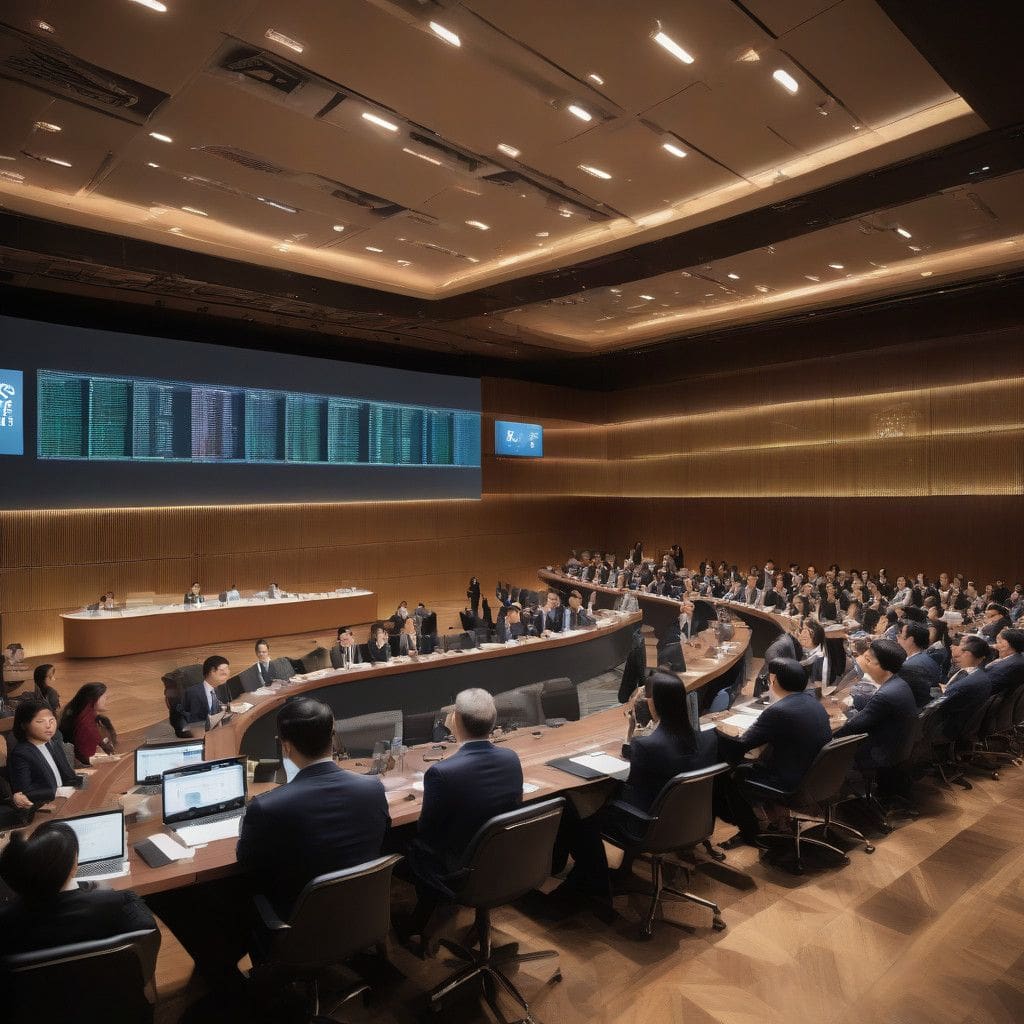Former Chinese finance minister Lou Jiwei has recently expressed significant concerns regarding the impact of cryptocurrencies on the global financial system. Speaking at the 2024 Tsinghua Wudaokou Chief Economists Forum in Beijing, Lou emphasized the need for cautious regulation amid the ongoing evolution of cryptocurrency markets and policies worldwide.
Lou’s remarks were largely influenced by the recent approval of spot Bitcoin exchange-traded funds (ETFs) by the U.S. Securities and Exchange Commission (SEC). This pivotal move reflects a broader trend of potential acceptance of cryptocurrencies within established financial frameworks, which is shifting the landscape of digital assets significantly. Lou called for Chinese policymakers to remain vigilant and adapt their regulatory strategies in response to these global developments to ensure the stability of China’s financial environment.
The concerns about cryptocurrencies are not unfounded. Lou highlighted the high volatility associated with these digital assets, pointing out their potential to be exploited for illicit activities such as money laundering and their possible threats to anti-terrorism financing efforts. These concerns mirror the apprehensions voiced by regulators around the globe, as they attempt to balance fostering innovation within the digital economy while safeguarding against financial crime and ensuring market integrity.
Notably, despite China instituting a ban on Bitcoin mining and trading in 2021, the country still controls over 55% of the global Bitcoin network, demonstrating its influence in the cryptocurrency space. However, this dominance is increasingly being challenged by U.S.-based mining pools, which now manage about 40% of global Bitcoin mining operations. This shift signifies a growing trend towards decentralization that could further complicate China’s regulatory environment.
Lou stressed the importance of staying ahead of international trends, indicating that understanding these dynamics is pivotal for China’s digital economic strategy. The political and financial realities of the international landscape necessitate adaptive regulations that can keep pace with technological advancements in the cryptocurrency sector. As global financial discussions evolve, China’s approach must be both strategic and responsive.
The backdrop of Lou’s remarks occurs amidst increasing global interest in how nations handle cryptocurrency regulation. For instance, countries like El Salvador have embraced Bitcoin as legal tender, while the European Union is moving forward with its Markets in Crypto-Assets (MiCA) regulation, which aims to create a comprehensive legal framework for cryptocurrencies across member states. Each of these developments underscores the varying responses to cryptocurrency, highlighting the necessity of nuanced policy responses.
Moreover, the evolving crypto landscape pushes financial institutions and governments worldwide to rethink their approaches to regulatory oversight. Striking a balance between innovation and security is a tightrope that many regulators are learning to walk, with varying degrees of success. This precariousness is likely to persist as the cryptocurrency market continues to develop and as new technologies and methods emerge.
In light of Lou’s analysis, it is crucial for Chinese regulators and policymakers to consider collaborative strategies that involve international cooperation. Engaging in dialogues with global counterparts can help in sharing best practices and gleaning insights that can lead to more effective regulatory frameworks.
Thus, while the potential benefits of cryptocurrencies, such as financial inclusion and innovation in payment systems, are clear, the associated risks cannot be overlooked. Lou’s call for caution serves as a reminder that as the world navigates the complexities of digital currencies, proactive measures must be prioritized to ensure that the financial ecosystem remains stable and secure.
In conclusion, the trajectory of cryptocurrency regulations is not merely a domestic issue, but a global affair that demands careful oversight. By actively monitoring international trends and adapting its regulatory framework, China can foster a more resilient digital economy that mitigates risks while seizing opportunities within the rapidly growing cryptocurrency sector.












